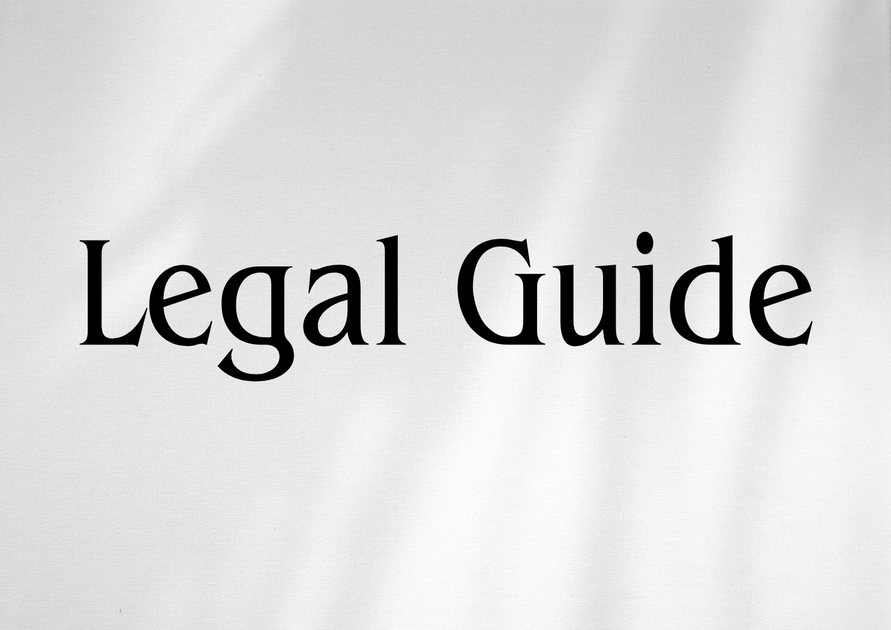Introduction
Share Purchase Agreements (SPAs) are cornerstone instruments in corporate and commercial transactions across the United Arab Emirates (UAE). Seamlessly transferring ownership of shares, these contracts underpin mergers, acquisitions, and restructuring within the region. With significant updates under Federal Decree-Law No. 32 of 2021 on Commercial Companies (as amended) and enhanced compliance expectations for 2025, understanding SPA requirements is more critical than ever for businesses, investors, legal professionals, and HR managers operating in the UAE. This analysis clarifies the regulatory landscape, highlights practical risk mitigation strategies, and outlines best practices for ensuring compliance and commercial certainty tailored to the UAE’s unique legal and business context.
Why Share Purchase Agreements Matter in the UAE Today
As the UAE continues its trajectory as a global hub for commerce and investment, due diligence around mergers and acquisitions is intensifying. The strategic importance of SPAs extends beyond merely documenting a transaction—they define rights, obligations, and liabilities, and are routinely subject to rigorous regulatory scrutiny. New compliance imperatives related to beneficial ownership, anti-money laundering (AML), and foreign direct investment (FDI) controls have heightened the complexity of share transfers. Navigating these complexities is essential for safeguarding interests and ensuring sustainable business growth.
Table of Contents
- Legal Framework Governing Share Purchase Agreements in the UAE
- Critical Elements of a UAE Share Purchase Agreement
- Regulatory Consent and Approvals for Share Deals
- Risk Management: Warranties, Indemnities, and Limitations of Liability
- Updates and Changes: Federal Decree-Law No. 32 of 2021 versus Previous Regimes
- Case Studies and Practical Scenarios
- Compliance Strategies and Practical Checklist
- Risks of Non-Compliance under Current UAE Law
- Future Outlook and Best Practices
- Conclusion
Legal Framework Governing Share Purchase Agreements in the UAE
Key Legislation and Sources
SPAs in the UAE are primarily governed by:
- Federal Decree-Law No. 32 of 2021 on Commercial Companies (CCL) – Most recent major amendment, repealing and replacing Federal Law No. 2 of 2015.
- Cabinet Resolution No. 58 of 2020 on Regulation of Procedures Related to Real Beneficiaries – Regarding Ultimate Beneficial Ownership (UBO) disclosures.
- UAE Central Bank Regulations – Especially relevant for transactions involving regulated financial entities.
- UAE Ministry of Economy Guidelines – For foreign direct investment, sectoral approvals, and UBO considerations.
- Sectoral Regulator Approvals – Including SCA (for listed companies), the Dubai Financial Services Authority (DFSA), and the Abu Dhabi Global Market (ADGM).
SPAs in free zones, particularly Dubai International Financial Centre (DIFC) and ADGM, may also be influenced by English law and local regulations. However, onshore UAE transactions—especially in the mainland—default to the federal framework.
Formality and Enforceability
No statutory requirement mandates a specific template or registration for SPAs under UAE law (unless specified by sectoral law or free zone requirement). Yet, enforcement may be affected by the quality of drafting and compliance with notarization or registration protocols for certain companies and asset classes. Failure to comply with material formalities, such as attestation of signatures, UBO disclosures, or Ministry of Economy filings, can undermine enforceability.
Official Law References
- Federal Decree-Law No. 32 of 2021 (Official Gazette No. 713, 27 September 2021)
- Cabinet Resolution No. 58 of 2020
Critical Elements of a UAE Share Purchase Agreement
Main Clauses and Customary Provisions
Best-in-class SPAs designed for UAE transactions typically include:
- Purchase Price and Payment Terms – Clear mechanisms (lump sum, milestone payments, earn-outs), currency, and anti-money laundering compliance checks.
- Warranties and Representations – On share title, authority, litigation, debts, assets, and liability status.
- Conditions Precedent – Regulatory approvals, consents, or other key deliverables before closing.
- Completion/Closing Procedures – Handover mechanics, share register updates, filings with relevant authorities.
- Post-Completion Covenants – Non-compete, confidentiality, transitional support, or escrow arrangements.
- Governing Law and Dispute Resolution – Onshore UAE, DIFC, ADGM, or offshore jurisdiction; court or arbitration selection.
Customised Terms for the UAE
UAE-specific provisions may include:
- Foreign Ownership Restrictions – Adherence to the Negative List under CCL or sectoral laws.
- Ultimate Beneficial Ownership (UBO) Compliance – Disclosures as per Cabinet Resolution No. 58 of 2020.
- AML and KYC – Alignment with Federal Decree-Law No. 20 of 2018 on Anti-Money Laundering and Terrorist Financing.
Suggested Visual
Table: SPA Clause Checklist (Recommended for clarity)
| Clause | Purpose |
|---|---|
| Purchase Price | Defines consideration and payment structure |
| Warranties/Representations | Risk allocation and compliance assurance |
| Conditions Precedent | Mitigates regulatory risk, triggers closing |
| Completion Procedures | Operational roadmap for handover |
| Governing Law/Dispute Forum | Sets dispute resolution framework |
Regulatory Consent and Approvals for Share Deals
Corporate and Sectoral Approvals
Transferring shares, especially in regulated sectors (like banking, insurance, healthcare, or energy), may trigger the need for:
- Ministry of Economy approval
- Sector regulator consent (e.g., Central Bank, Securities and Commodities Authority)
- Notarization of share transfer instrument
- Update of share register and notarization (for onshore limited liability companies)
Foreign Direct Investment (FDI) Controls
The UAE has liberalised foreign ownership restrictions under Federal Decree-Law No. 26 of 2020, but sectoral restrictions remain. Failure to observe FDI rules can lead to administrative fines, transaction nullification, or regulatory penalties.
Ultimate Beneficial Owner (UBO) Compliance
As per Cabinet Resolution No. 58 of 2020 and updates from the UAE Ministry of Economy, all share transfers must be accompanied by an up-to-date UBO declaration. Penalties for non-compliance can reach AED 100,000 and suspension of commercial licenses.
Hypothetical Example
A UAE LLC in the healthcare sector plans to transfer 40% of its shares to a foreign investor. As healthcare falls under a partially restricted sector, the transaction requires Ministry of Health & Prevention approval and Ministry of Economy confirmation of compliance with UBO and FDI regulations. The transaction is delayed due to incomplete UBO filings, risking significant penalties until compliance is confirmed.
Risk Management: Warranties, Indemnities, and Limitations of Liability
SPA Risk Allocation Mechanisms
The most common sources of dispute post-acquisition are breaches of warranty and non-disclosure of liabilities. To manage these risks, UAE SPAs should include:
- Comprehensive warranties (company authority, no undisclosed litigation, valid intellectual property rights)
- Indemnity clauses for environmental breaches, tax, or employment claims
- Limitations on liability (cap amount, time limits, exclusion of indirect loss)
Suggested Table
Risk Allocation Clauses: Common Triggers and Application
| Clause | Trigger/Scenario | Best Practice |
|---|---|---|
| Warranties | Undisclosed debts, regulatory breaches | Detailed disclosure process |
| Indemnities | Tax audit, environmental fines | Specific caps, survival period |
| Limitation of Liability | Unknown third-party claims | Agreed cap, carve-outs for fraud |
Updates and Changes: Federal Decree-Law No. 32 of 2021 versus Previous Regimes
Significant Amendments with Direct Impact on Share Transfers
Federal Decree-Law No. 32 of 2021 introduced several noteworthy changes:
- Abolition of minimum UAE national shareholding for most sectors, except those on the Negative List
- Simplification of company formation and share transfer protocols, reducing bureaucratic hurdles
- Mandatory UBO reporting for all entities
- Greater corporate transparency via real-time register and beneficial ownership filing
Comparison Table: Old vs. New Company Law
| Aspect | Federal Law No. 2 of 2015 | Federal Decree-Law No. 32 of 2021 |
|---|---|---|
| Foreign Ownership | UAE nationals must hold 51% in onshore companies (most cases) | Up to 100% foreign ownership (except Negative List sectors) |
| Share Transfer Procedure | Lengthy, multiple approvals, some Ministry of Economy requirements | Streamlined, less bureaucracy, instant register update in many cases |
| UBO Filing | Not mandatory | Mandatory for all private companies |
| Penalties for Non-Compliance | Admin warnings and possible license suspension | Large administrative fines (up to AED 100,000+ for UBO non-disclosure) |
Case Studies and Practical Scenarios
Case Study 1: Share Disposal without UBO Update
A family business incorporated on the mainland proceeds with a partial share sale to an offshore investor. The outdated beneficial owner register triggers a Ministry of Economy inspection, resulting in a fine of AED 50,000. The sale is suspended until updated UBO documents are provided and approved.
Case Study 2: Lack of Regulatory Approval in a Regulated Sector
An insurance company entered into a SPA without prior approval from the Insurance Authority. The share transfer is not recognised by the authority, creating legal uncertainty and jeopardising critical operating licenses.
Lessons Learned and Consultancy Insights
- Always verify UBO and shareholder registry status before signing a SPA.
- Secure all sectoral or regulatory consents before completion, not post-closing.
- Align SPA completion mechanics with the actual regulatory requirements and timelines.
Compliance Strategies and Practical Checklist
Advice for Businesses and Stakeholders
To effectively navigate the landscape of share transfers in the UAE, organizations should adopt a robust compliance strategy:
- Engage licensed legal consultants at the outset of any share deal.
- Carry out comprehensive legal due diligence, including UBO and sectoral risk assessment.
- Establish a clear timeline for regulatory approvals and filings.
- Coordinate with local notaries and the Department of Economic Development (DED) for document attestation.
- Utilize escrow or deferred payment structures to address closing risk where necessary.
Suggested Table: Compliance Checklist for UAE SPA
| Step | Action | Responsible Party | Risk if Missed |
|---|---|---|---|
| Due Diligence | Full review of company’s legal and financial status | Buyer/Legal | Unknown liabilities |
| Regulatory Approvals | Secure consents from all relevant authorities | Company/Legal | Deal non-recognition |
| UBO Filing | Update and file beneficial owner register | Company Secretary | Fines, delays |
| Notarisation | Share transfer attestation (for LLCs) | Company/Notary | Invalid transfer |
| Register Update | Amend corporate register post-completion | Company | Legal uncertainty |
Risks of Non-Compliance under Current UAE Law
Legal and Commercial Exposure
Non-compliance carries multi-layered risks, including:
- Administrative Penalties (AED 50,000–AED 100,000 or more for UBO or FDI violations)
- License Suspension or Revocation (by the DED, Ministry of Economy, or sectoral authorities)
- Contract Nullification or Non-Enforceability (risking both parties’ interests)
- Reputational Damage, undermining investor confidence
Visual Suggestion
Penalty Comparison Chart – comparing key penalties pre- and post-2021 law, improving visual engagement.
Future Outlook and Best Practices
Evolving Compliance Landscape
The UAE’s regulatory environment is poised for further sophistication in light of continued global investment and alignment with international standards. Emerging developments for 2025 include anticipated enhancements to digital share register platforms, increased scrutiny on beneficial ownership, and further clarification of sectoral approval requirements under the purview of the UAE Ministry of Economy and Ministry of Justice.
Proactive Best Practices
- Audit corporate structure and shareholding arrangements annually.
- Stay informed about updates from the Federal Legal Gazette, Ministry of Economy, and sectoral authorities.
- Engage experienced UAE legal practitioners in drafting and executing SPAs.
- Prioritise transparency and full disclosure in all share transfer documentation.
- Utilise digital tools for real-time compliance tracking where available.
Conclusion
Share Purchase Agreements form the legal foundation for ownership transitions and investment in the UAE, playing a decisive role in strategic business decisions. The regulatory landscape, especially under Federal Decree-Law No. 32 of 2021 and its 2025 amendments, rewards diligent compliance and punishes oversight. By integrating robust SPA provisions, securing all requisite approvals, and maintaining transparent registers, businesses not only mitigate legal risks but also position themselves competitively in the UAE’s dynamic market. Proactively engaging with updated laws and best practices as outlined by the UAE Ministry of Justice, Ministry of Economy, and sectoral regulators will ensure sustainable commercial growth and continued investor confidence in years ahead.




